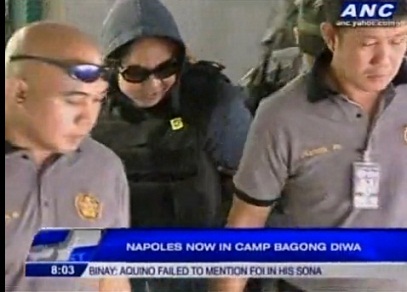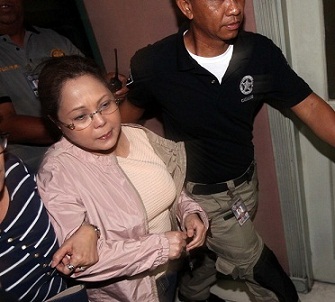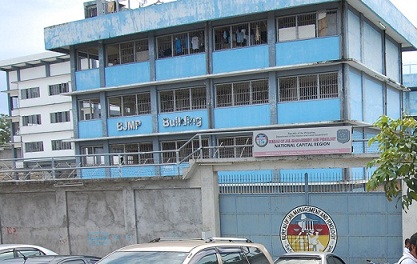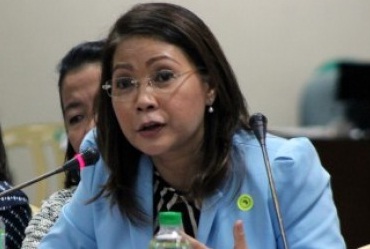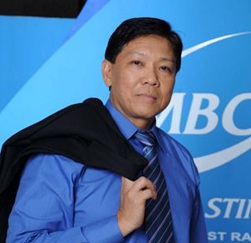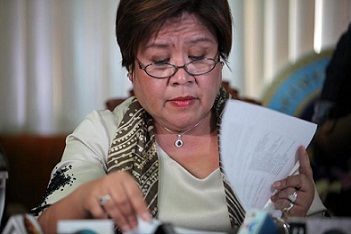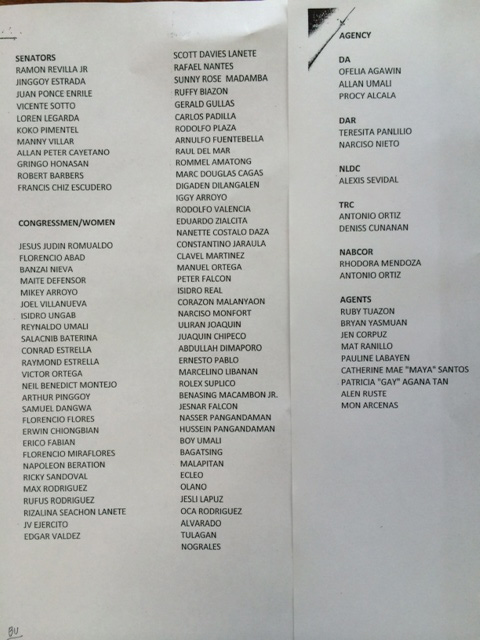Supreme Court most trusted, more distrust for House and Senate
By Julius D. Mariveles
THE SUPREME COURT, the Senate, and the House of Representatives have all failed to score majority approval and trust ratings, according to the results of the latest “Ulat ng Bayan” of Pulse Asia Research, a creditable national pollster.
This is the unfortunate result of a nationwide survey on the performance and trust ratings of key government institutions that Pulse Asia conducted from June 24 to July 2, 2014, among a sample of 1,200 representative adults 18 years old and above.
The Supreme Court got a 49 percent performance rating, or higher than the scores of the Senate and House of Representatives of 33 percent and 34 percent, respectively.
The High Court was also the most trusted, with a 42 percent approval rating. In contrast, the House of Representatives was the least trusted with 29 percent, while the Senate got 31 percent.
The nationwide survey, the results of which were released this August, had a margin of error of plus or minus three percent and a confidence level of 95 percent, Pulse Asia said in a news release.
It added that the subnational estimates for each of the geographic areas have a plus or minus six percent margin of error, also at 95 percent confidence level.
The same survey showed that disapproval and distrust are “more pronounced” for the House and the Senate.
In the disapproval ratings, the high court got 13 percent compared to the House’s 21 percent and the Senate’s 23 percent.
The Senate got the highest distrust level at 20 percent compared to the House’s 19 percent and the Supreme Court’s 10 percent (Please see Tables 1 to 2).
Pulse Asia also noted that while the assessment of the Supreme Court’s work and trustworthiness remained unchanged between two survey periods – March 14 and June 14 – the two chambers of Congress “experienced significant changes in their respective ratings – at the national level and across selected survey sub-groupings.”
Between March and June 2014, the Senate experienced a significant drop in its national approval score with minus eight percentage points and an increase in its overall disapproval rating of plus nine percentage points.
There was also a noted decline in the level of appreciation for the Senate’s work in Metro Manila by minus 14 percentage points, in Mindanao by minus 15 percentage points, and in Classes ABC and D by minus nine to minus 19 percentage points (Please see Table 3).
DECLINE IN THE FACE OF PDAF SCAM
Trust ratings in the Senate and the House of Representatives also dropped amidst the controversy over the Priority Development Assistance (PDAF) or pork barrel scam.
The Senate’s ratings dropped by minus 14 percentage points in the Visayas, minus 15 in Mindanao, minus 18 in Metro Manila, and minus 15 to 18 percentage points in Classes ABC and E. Meanwhile, the Lower House’s trust ratings dropped by minus 15 percentage points in Class E and minus 16 percentage points in Metro Manila.
Pulse Asia pointed out that fewer Filipinos expressed trust in the Senate and House of Representatives in June 2014 than six months ago while the distrust in the Supreme Court eased between December 2013 and June 2014 (Please see Table 4).
Among the issues according to Pulse Asia that “preoccupied” Filipinos before and during the conduct of the field interviews for the survey were the following:
- The filing of charges of plunder and violation and anti-graft laws against some senators and the indictment of Janet Lim Napoles and some members of the legislative staffs of Senators Juan Ponce Enrile, Jinggoy Estrada, and Bong Revilla. The surrenders of Revilla and Estrada following the issuance of arrest warrants against them; and the “not guilty” pleas entered by the Sandiganbayan in their behalf;
- The Office of the Ombudsman’s denial of the petition for immunity of Napoles and several other government officials;
- The petition of the Office of the Ombudsman before the Sandiganbayan for the creation of two special courts to handle cases related to the pork barrel scam;
- The decision issued by the Supreme Court declaring several acts under the Disbursement Acceleration Program as unconstitutional;
- The statement of support for President Aquino made by House Speaker Feliciano Belmonte, Jr. and other pro-administration lawmakers in response to calls for the President’s impeachment and the resignation of Budget Sec. Florencio Abad coming from some opposition lawmakers and militant groups;
- The creation by the Office of the Ombudsman of a panel that will investigate the realignments in the national budget made by the administration under the DAP;
- The Sandiganbayan’s order to suspend former President and incumbent Pampanga Rep. Gloria Macapagal Arroyo for 90 days in connection with her alleged involvement in the NBN-ZTE deal;
- The continued tension between the Philippines and China over the disputed territories in the West Philippine Sea;
- The President’s call for the Philippine National Police to swiftly resolve crime incidents after the recent series of killings involving several high-profile individuals;
- The confirmation of the appointments of Justice Sec. Leila De Lima, Social Welfare Sec. Corazon J. Soliman, and Environment Sec. Ramon J.P. Paje after being in office for four years;
- The celebration of the 116th Philippine Independence Day on June 12 with President Aquino leading the rites in Naga City;
- The controversial decision of President Aquino to reject the nomination of Nora Aunor as National Artist for Film;
- The continued failure of the Bureau of Internal Revenue and the Bureau of Customs to meet their collection targets for the month of May 2014;
- The decline in power rates charged by the Manila Electric Company in June 2014;
- The increase in oil prices due to the continued crisis in Iraq;
- The hike in the prices of rice, garlic, and sugar reportedly due to lower supply levels; and
- The DBM’s budget proposal totaling P2.06 trillion for the year 2015.





